Description
Korgua Estate AA Coffee
This washed AA grade coffee comes from the Korgua Estate, located in the Nebilyer District of Papua New Guinea’s Central Highlands, at an altitude of approximately 1400 meters above sea level. The estate is managed by second-generation coffee producer Brian Leahy, whose family has been involved in the region since the 1930s. The farm was initially established by Brian’s father, Dan, and his uncle Mick, both of whom were early explorers in the area. Korgua Estate was one of the first coffee farms in the region and was specifically situated on neutral ground to enable coffee farmers from neighboring tribes to bring their crops to market without conflict.
The coffee produced here is processed using the wet method, where the cherry’s fruit is removed through mechanical depulping, followed by fermentation to remove any remaining mucilage. This results in a clean cup with enhanced clarity. The farm primarily cultivates older Bourbon and Typica cultivars, contributing to the coffee’s characteristic profile.
In the cup, the flavor profile is complex and intense, with a body that can vary from heavy to syrupy depending on the brewing method. The coffee’s boldness is prominent, making it more assertive than subtle in taste. The consistent processing and attention to detail at Korgua Estate is meant to ensure that each batch reflects both the high elevation and the unique growing conditions of the region.
Coffee Production in Papua New Guinea: A General Overview
Papua New Guinea (PNG) is known for producing some of the world’s most unique and high-quality coffee, with cultivation primarily occurring in the highland regions at elevations between 1200 and 1800 meters above sea level. Key coffee-producing provinces include Eastern Highlands, Western Highlands, Simbu, and Jiwaka. These areas are characterized by high altitudes, rich volcanic soil, and consistent rainfall, all contributing to the development of the coffee’s complex flavors. The country’s varied climate, elevation, and soil types create ideal conditions for growing coffee, characterized by a distinct flavor profile that includes mild acidity, medium body, and fruity, floral, and earthy notes.
Coffee is a significant agricultural product and an important export, with the majority of production coming from smallholder farmers, often in remote and isolated regions. These farmers typically produce coffee on family-owned plots, where it is grown under diverse shade trees. Larger estates also exist, such as the Korgua Estate, where more controlled and advanced processing techniques are applied. Coffee in PNG is mainly grown using traditional methods, with many farmers continuing to harvest by hand.
The majority of coffee produced in PNG is of the arabica variety, often including Bourbon, Typica, and local cultivars. Harvesting typically occurs from May to October, with selective hand-picking of ripe cherries. The two main post-harvest processing methods are wet (washed) and dry (natural), with wet processing being more common. Washed coffees are often fermented, pulped, washed, and sun-dried. Dry processing is used in areas with limited access to water.
While smallholder coffee farming is the backbone of the industry, challenges such as limited access to infrastructure, fluctuating market prices, and climate change impact coffee production. Despite these challenges, the quality of PNG coffee remains high, driven by the dedication of local farmers and the favorable growing conditions in the Highland, and coffee remains one of the most important agricultural exports for PNG, providing significant income for rural farmers and contributing to national foreign exchange earnings.

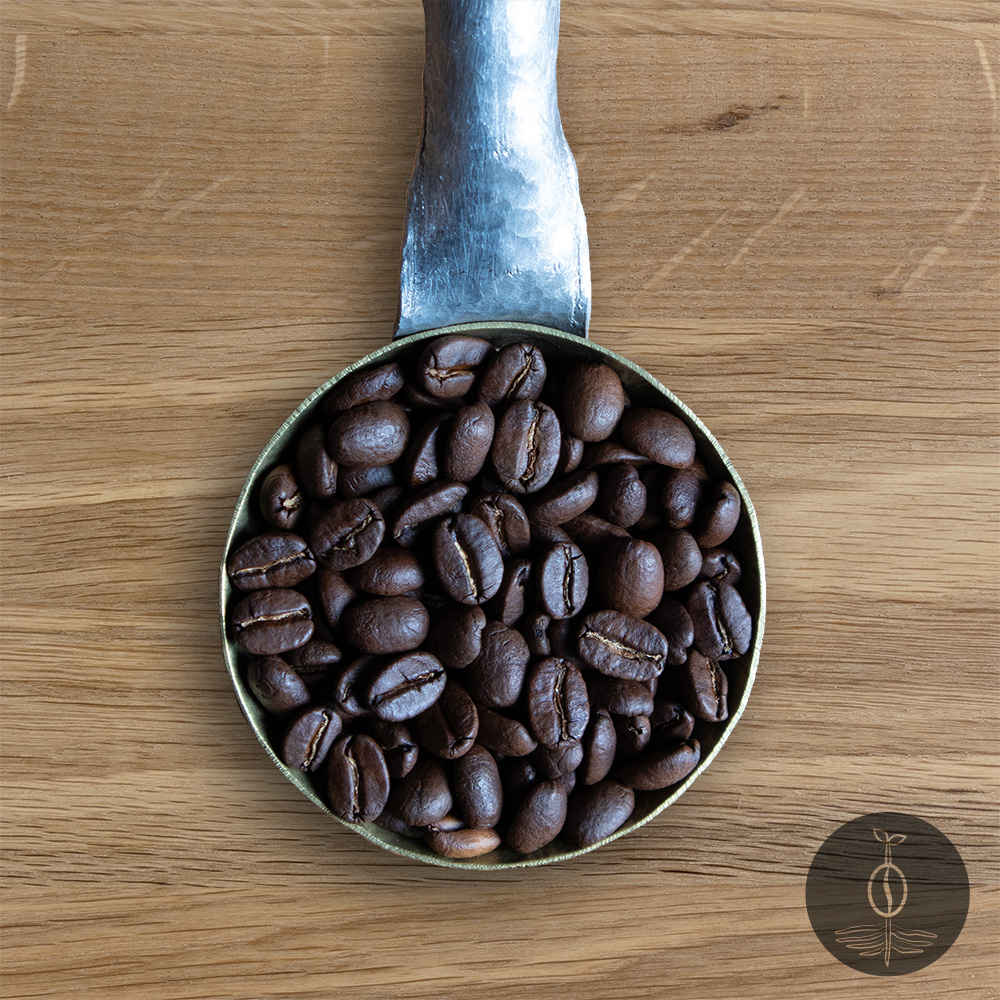
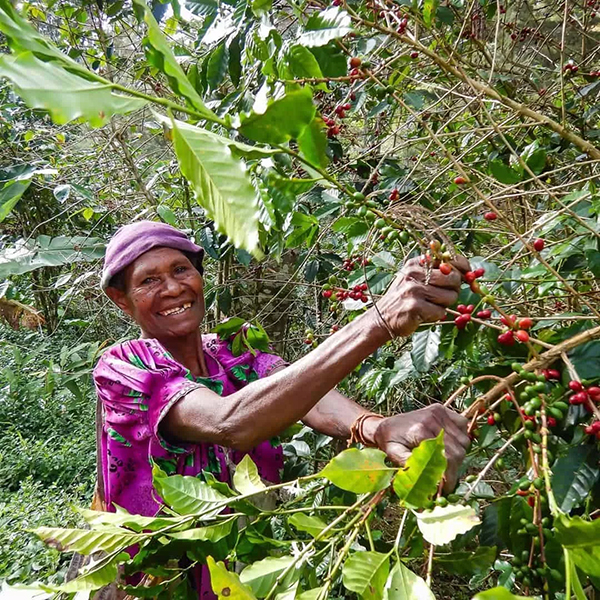
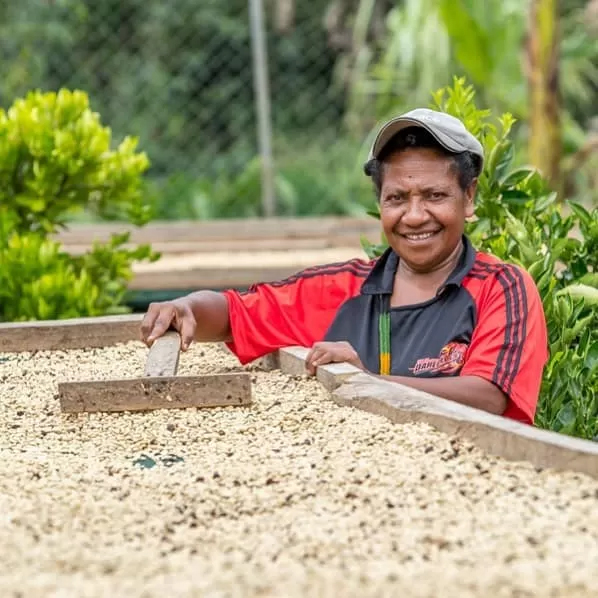
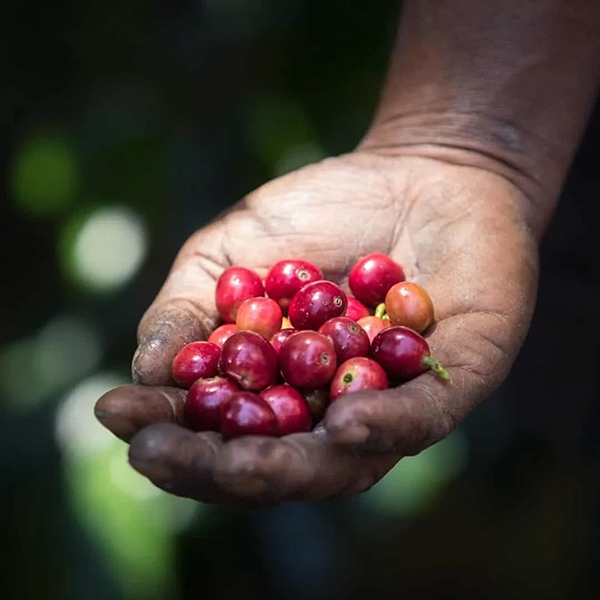
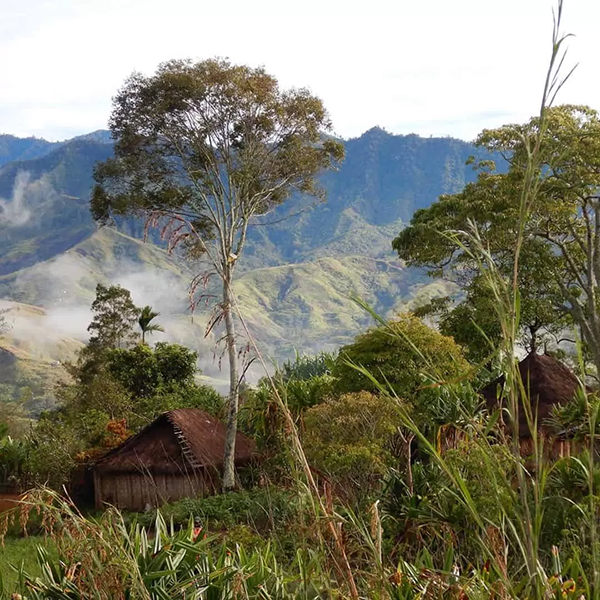
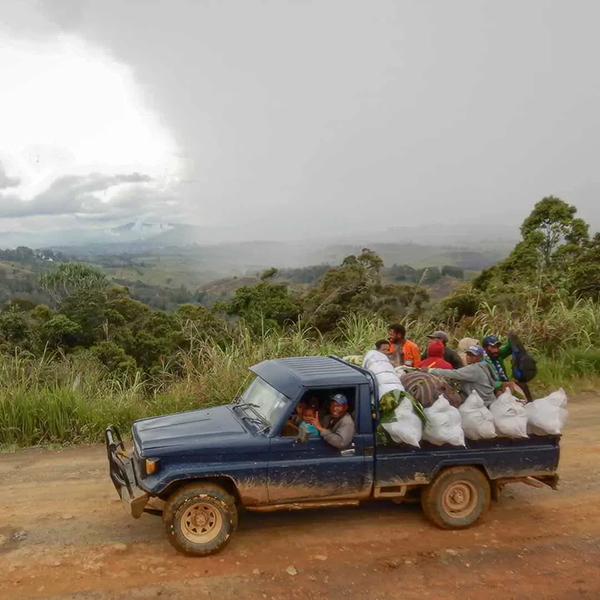

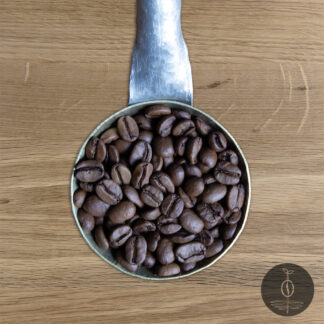
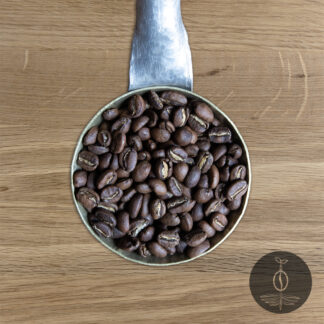
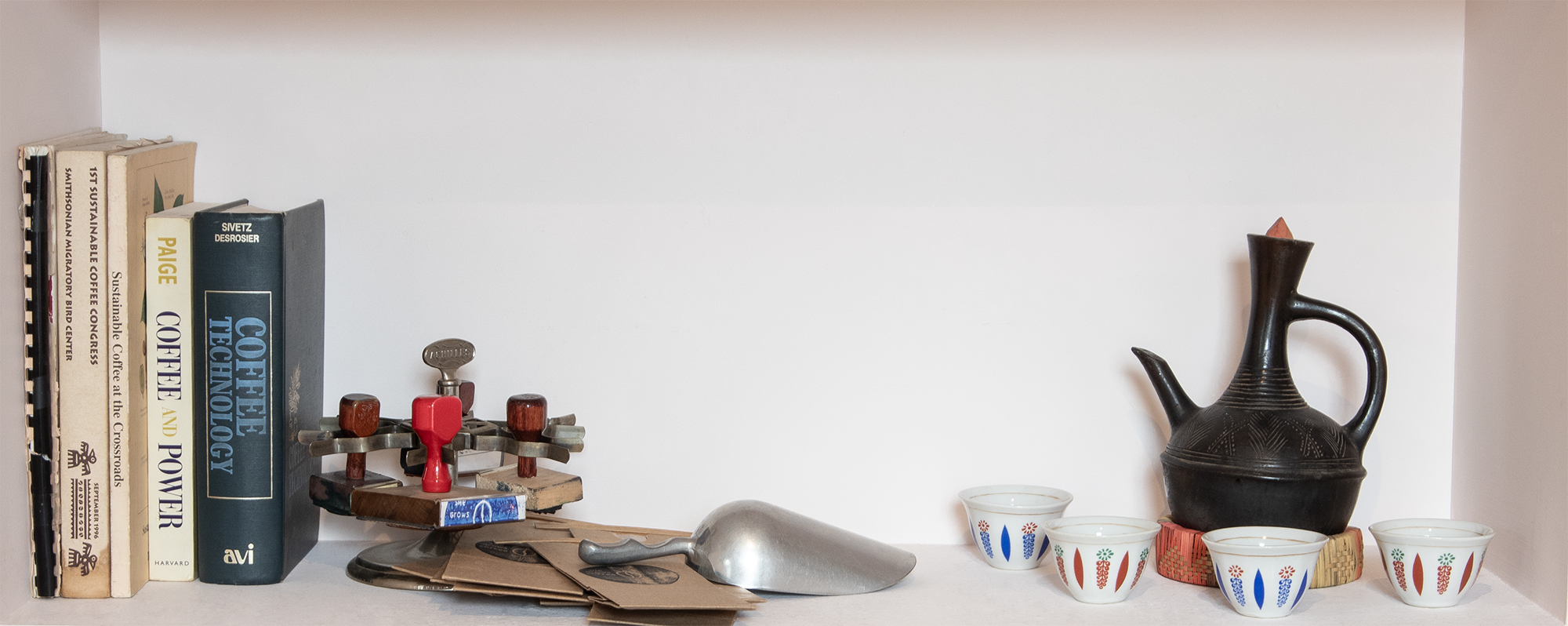
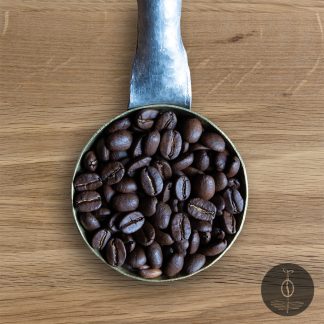
Reviews
There are no reviews yet.